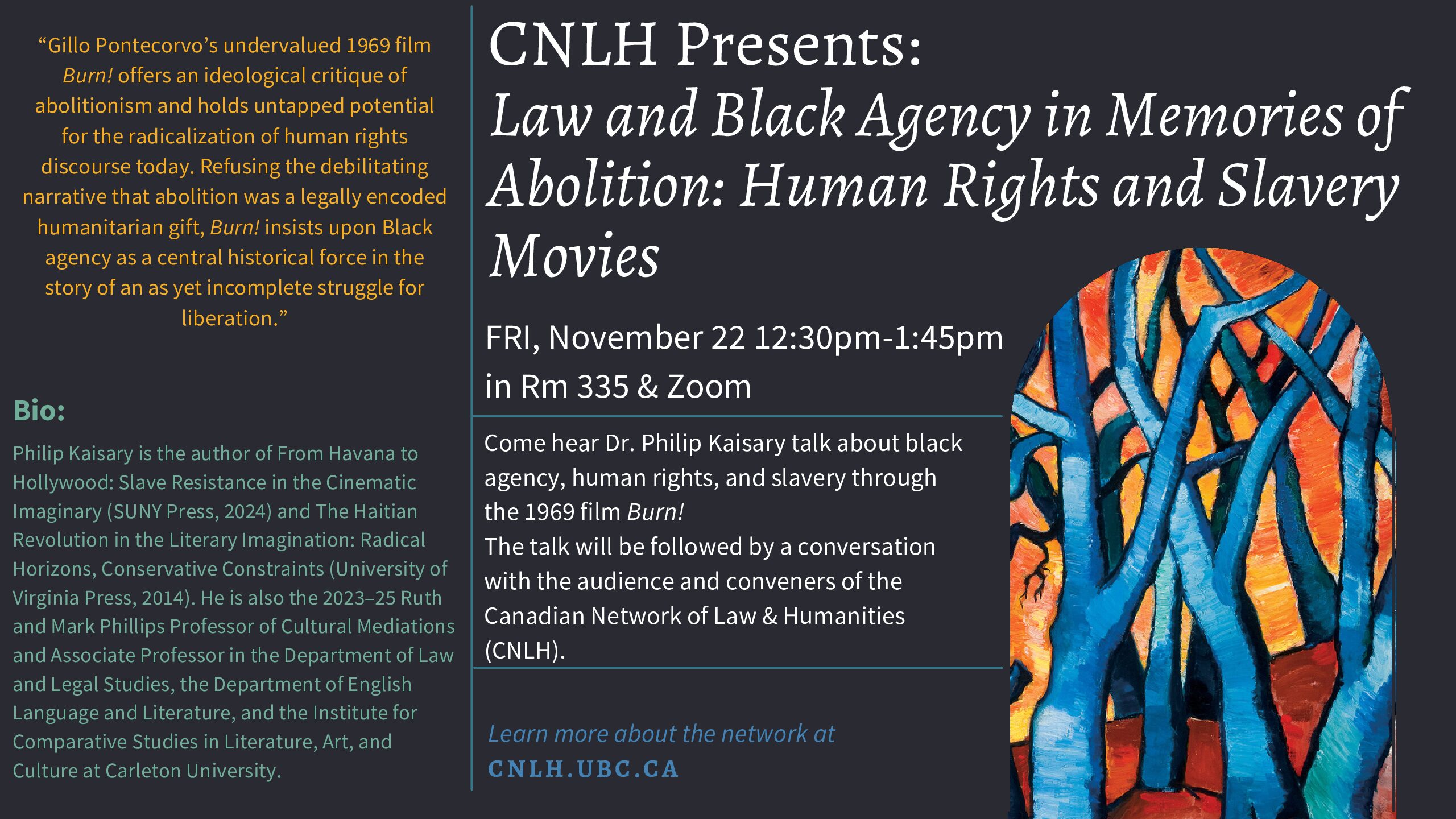
CNLH Presents: Law and Black Agency in Memories of Abolition: Human Rights and Slavery Movies
Room 335, Allard Law, UBC or on Zoom
Friday, November 22 at 12:30pm-1:45pm (PDT)
Zoom Webinar Link Here: https://ubc.zoom.us/j/68714254802?pwd=SH2n3mk07bgTIjUKa32OQqYxUWEW1y.1
Come hear Dr. Philip Kaisary talk about about black agency, human rights, and slavery through the 1969 film Burn!
The talk will be followed by a conversation with the audience and conveners of the Canadian Network of Law & Humanties (CNLH).
Abolitionism holds a privileged place in human rights historiography. In scholarship and the wider social world, the abolition of slavery has frequently been celebrated as a foundational human rights moment. This celebratory discourse has also impinged on the medium of cinema: slavery films frequently propagate the view that abolition was a ‘gift’ codified in law. In this reductionist discourse, law is configured as the guarantor of freedom and Black resistance to
slavery is marginalized. By this strategy, the history of slavery is transfigured into a platform for the celebration of white moral indignation via attention to a canonized set of white patriarchs conceived of as philanthropic, moral crusaders, who are recognizably the forerunners of today’s white saviour ‘human rights heroes.’ However, as we know, Black agency was also a decisive force in bringing Atlantic slavery to an end – most spectacularly in Haiti. Gillo Pontecorvo’s
undervalued 1969 film Burn! offers an ideological critique of abolitionism and holds untapped potential for the radicalization of human rights discourse today. Refusing the debilitating narrative that abolition was a legally encoded humanitarian gift, Burn! insists upon Black agency as a central historical force in the story of an as yet incomplete struggle for liberation.
Bio:
Philip Kaisary is the author of From Havana to Hollywood: Slave Resistance in the Cinematic Imaginary (SUNY Press, 2024) and The Haitian Revolution in the Literary Imagination: Radical Horizons, Conservative Constraints (University of Virginia Press, 2014). He is also the 2023–25 Ruth and Mark Phillips Professor of Cultural Mediations and Associate Professor in the Department of Law and Legal Studies, the Department of English Language and Literature, and
the Institute for Comparative Studies in Literature, Art, and Culture at Carleton University.
